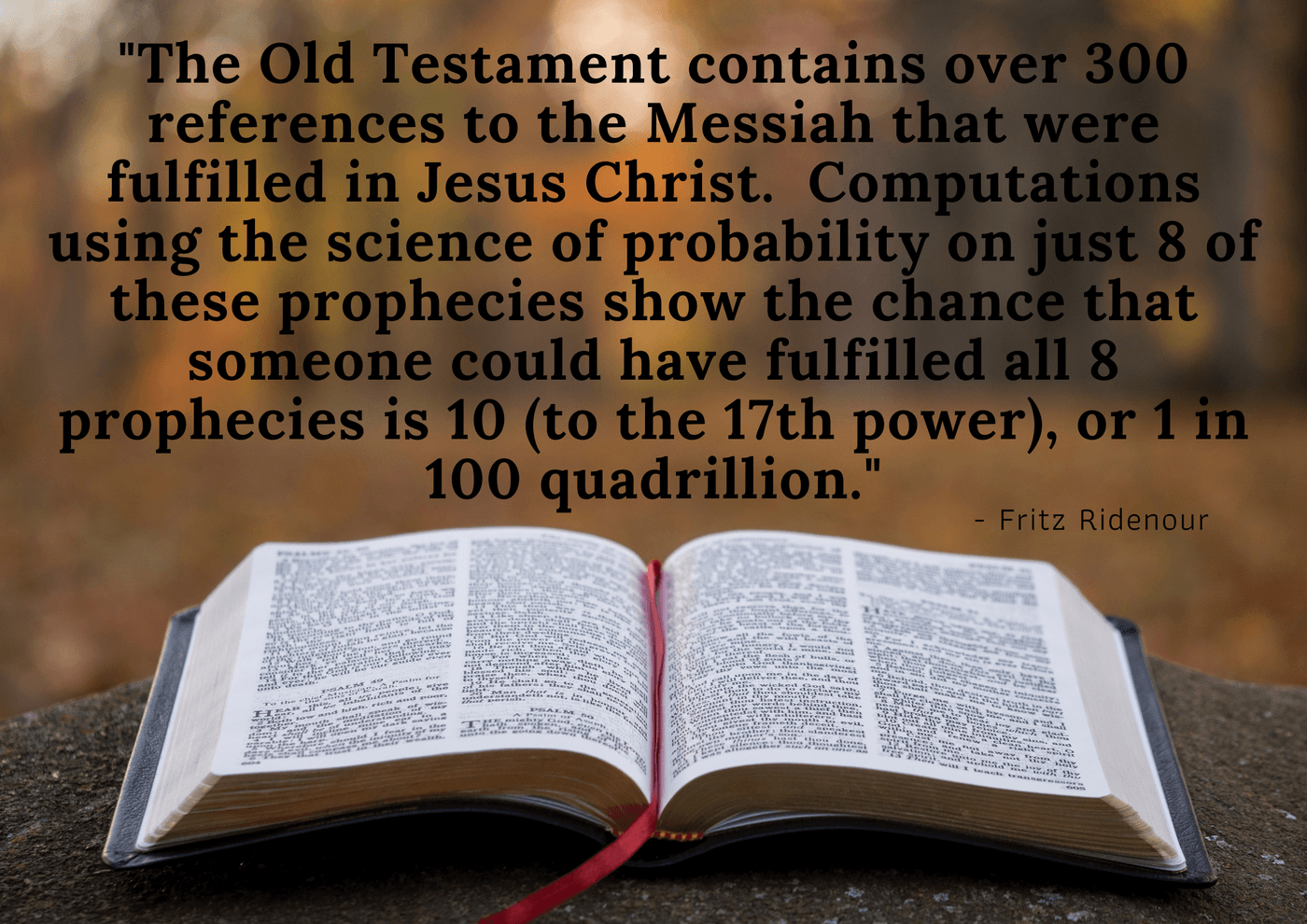Continuing with Jesus
Old Testament - The Prelude
Welcome to week 3 of our Continuing with Jesus series.
Our third lesson is around the first part of the Bible the Old Testament. We will talk in more detail about the Bible and how we should read the Bible in a later lesson, but in brief we believe that the Bible is the Word of God – people inspired by the Holy Spirit. It is the inerrant and infallible Word of God and our highest authority for faith and practice. It is contains 66 books total: 39 books make up the Old Testament and 27 make up the New Testament.
The book of Genesis has already been mentioned in the previous lesson and is part of the 5 books in the Old Testament known as the Pentateuch or the Law Books. It speaks of the beginnings of creation and the birthing of the nation of Israel becoming God’s chosen nation. It was promised to Abraham, their Patriarchal / Founding Father, the nation of Israel would be one in which all the other nations of the world will be blessed. Spoiler alert: this was pointing to the coming of Jesus!
Through Moses and the deliverance of the Israelites out of Egypt came the event known as the Passover – again another ‘foretelling’ of what Jesus would accomplish in freeing us from the captivity of sin and death. The law was given to Moses for the Israelites, with the 10 commandments providing a summary. The law reveals the character and holiness of God, separates the nation of Israel as distinct from other nations, and reveals man’s sinfulness whiling giving a temporary way of forgiveness through sacrifices. It also brought in feasts and a way in which to worship and honour God. Ultimately the law shows that we cannot fulfil it without divine intervention. Remember this is all a prelude to a ‘better way’ that is coming.
Next 12 books are known as history books or alternatively former prophets. The law books end with the Israelites just outside the Promised Land which they were to inhabit. The history books take us through from Israel’s conquest for their new home, through to them going through a stage of having judges and then earthly kings over them as a nation. Some key phrasing throughout these time periods have to do with whether the people of Israel or the king of the time did what was right in the sight of the Lord or did what was right in their own eyes – or evil in the sight of the Lord. When they did what was right, this lead to times of prosperity for the nation, with perhaps the most well-known season being that of King David’s heart for God which lead to Israel succeeding for the duration of his reign and that of his son, Solomon. However when the people didn’t follow God’s ways it lead to them being vulnerable to attacks and culminating after many warnings from God with His people being taken into captivity.
The last few history books reveal God, protecting his people in captivity and slowly bringing back his people into their homeland with the rebuilding of the temple and walls – as seen in Ezra, Nehemiah and Esther. These books also end the chronological section of the Old Testament with a period of what is known as the Intertestamental Period. The rest of the books of the Old Testament are sprinkled throughout the timeline.
Following the history books are the poetic and wisdom books; Job, Psalms, Proverbs, Ecclesiastes & Song of Solomon. As you can image, there is a major change in the style of writing between these books and the history books. The language is a lot more figurative and symbolic; Job & Proverbs contain a lot of written dialogue and conversations, some short questions and/or insights and wisdom pieces. Psalms is a book of prayers, songs and poetry often portraying the full range of human emotions from praise to repentance, from mourning to joy. Ecclesiastes and Song of Solomon are two very distinct books – Ecclesiastes one mans journey trailing everything in life and coming to the point it is all meaningless – apart from living in obedience to God. Song of Solomon is a poetic musical celebrating marriage and the gift of sex in marriage. All these books often give a view into the writer’s hearts and emotions while the grappled with the faith issues and experiences that we face today. They give us confidence that God is big enough to not be trouble by our questions but wants us to continue to draw near to Him as we journey through life.
The final sixteen books of the Old Testament contain the Prophetic Books. These are often divided into the Major Prophets; Isaiah, Jeremiah, Lamentations, Ezekiel & Daniel; and the Minor Prophets – all the rest; Hosea, Joel, Amos, Obadiah, Jonah, Micah, Nahum, Habakkuk, Zephaniah, Haggai, Zechariah & Malachi. Now the importance of their message is not the distinction between major and minor, more so the volume of the prophetic word, with the major prophet books being amongst the longest books in the whole Bible – in fact Jeremiah is the longest Book. A lot of the minor prophetic books are fairly short by comparison.
The prophetic books, which are chronologically scattered throughout Old Testament history, show that God was speaking through His nominated prophet. In a snapshot, the prophets often delivered messages of warning and a call to repentance, mainly direct to Israel – calling God’s people to turn from disobeying God and following the evil practices in neighbouring lands and to return to Him. But always intermingled in every utterance was a message of mercy and a reminder that God is faithful and will remain faithful, even when His people reject and turn from Him. The ultimate message often pointed to the coming of One Who would bring people back into true relationship with God, bearing the sin of not just Israel but the world. It’s important to note that some of these prophecies are not just in the prophetic books but in other Old Testament books especially books like Genesis and Psalms. In fact there are over three hundred prophecies contained in some five hundred different verses that Jesus fulfilled when He came.
And this is why to a large degree the Old Testament is the prelude to the main climatic event in history, from right when the fall of man happened God had put a plan into motion; God said there was One coming who would ‘crush the head of the serpent’! Through the birth of the nation of Israel and as Paul writes in 1 Corinthians 10:11 are given to us as an example and sign to instruction us, upon whom the ends of the age have come. God revealed Himself, His names, His character, His nature, His ways, His heart and His ultimate plan throughout the Old Testament. It is the curtain opener to greatest story ever told – Jesus. But that’s for the next lesson.
Thanks for joining us – check out the questions and further resources and keep continuing with Jesus!
For You to Explore
Under Construction
Further Resources
Book Overviews of the Old Testament Books -> Bible Project



